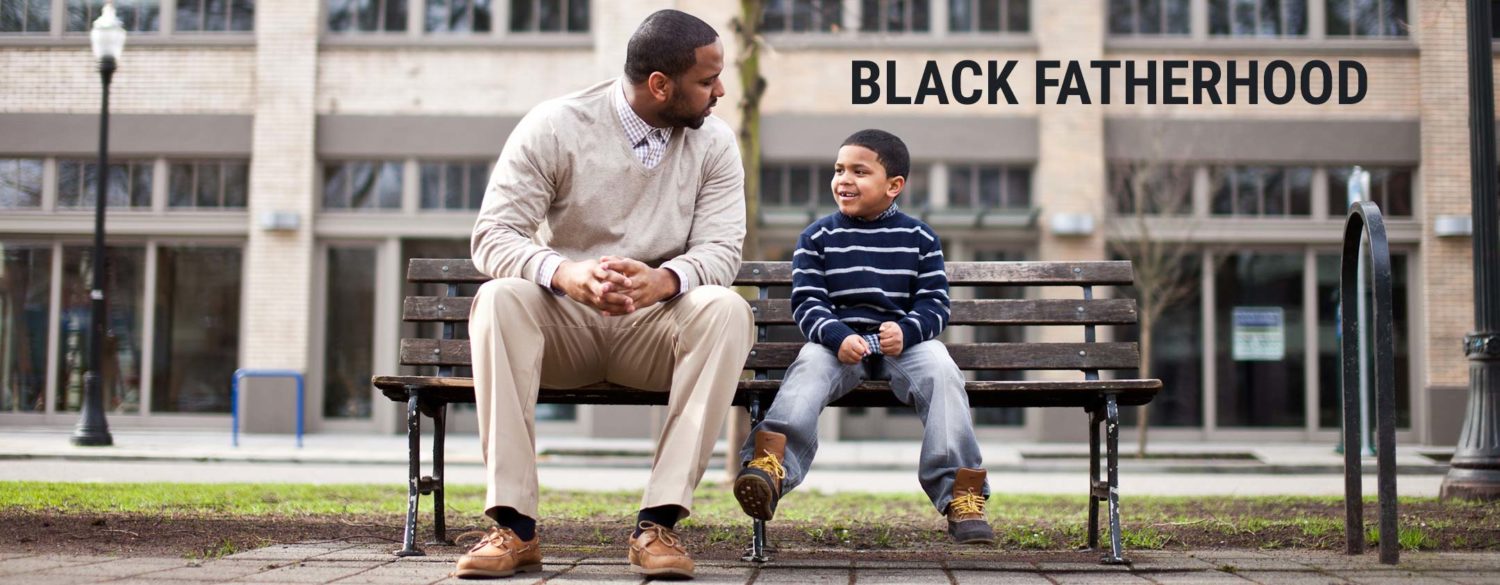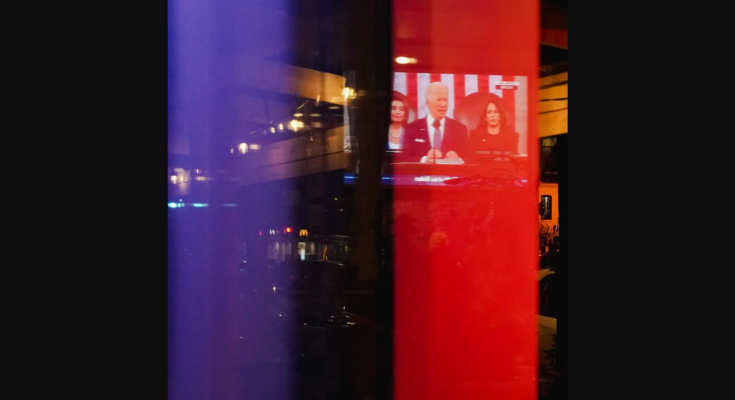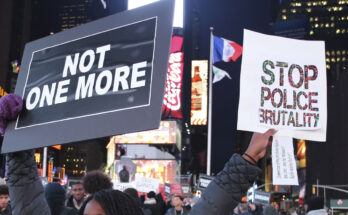By Charles M. Blow | Opinion Columnist
Dear President Biden,
What a difference 300 days makes.
On April 28, 2021, you marked your first 100 days in office by delivering a speech to a joint session of Congress.
In it, you made an impassioned moral case for police reform, invoking the words of Gianna Floyd, George Floyd’s daughter, when she told you, “My daddy changed the world.” You told the country — in one of the most eloquent passages you have ever delivered, I might add — that: “We’ve all seen the knee of injustice on the neck of Black Americans. Now is our opportunity to make some real progress.”
As you put it: “My fellow Americans, we have to come together to rebuild trust between law enforcement and the people they serve, to root out systemic racism in our criminal justice system and enact police reform in George Floyd’s name that passed the House already.”
In that same speech, you pointed out that the intelligence community saw white supremacy terrorism as the “most lethal terrorist threat” facing the country.
You noted that the United States had a real opening to promote real equality and “real opportunities in the lives of more Americans — Black, white, Latino, Asian Americans, Native Americans.”
Well, in the 307 days between that speech and your State of the Union on Tuesday, you performed a political pirouette and ended up facing the opposite direction.
On Tuesday, you invoked the families of two New York City police officers tragically slain in the line of duty to make this plea:
“We should all agree: The answer is not to defund the police. It’s to fund the police. Fund them. Fund them. Fund them with resources and training. Resources and training they need to protect their communities. I ask Democrats and Republicans alike to pass my budget and keep our neighborhoods safe.”
This feels like a callous attempt to appease the law-and-order crowd. Policing has not fundamentally changed over the past year. According to The Washington Post, there were a record number of fatal police shootings in 2021. Flooding a police system in desperate need of reform with more cash, before demanding those reforms, would only serve to buttress the brokenness. Maybe policing shouldn’t be starved, but it definitely shouldn’t be fattened.
There was no mention of the George Floyd Justice in Policing Act in the State of the Union. Talks on that bill collapsed in September, but you said you would continue to work with members of Congress who were “serious about meaningful police reform” and you focused on drafting an executive order that included many of the original bill’s proposed reforms.
When it leaked in January, The New York Times reported that law enforcement groups were so enraged by “the tenor of the order’s policy preamble, which spoke of ‘systemic racism’ in the criminal justice system,” that Susan Rice, the White House domestic policy adviser, was forced “to make conciliatory phone calls with an eye toward more substantive discussions.”
Mr. President, it’s March. We are still waiting for you to issue that executive order.
In the State of the Union you didn’t once say the words “Black” or “African American,” “white” or “Hispanic.”
Race, as a word, magically disappeared from your rhetorical repertoire. Why? I assume because the political winds have shifted. What polled well last spring isn’t polling well this spring.
Even when you mentioned increasing support for historically Black colleges and universities, you used the acronym, H.B.C.U.s. Minor? Yes. But I noticed. By the way, the best way to help the graduates of H.B.C.U.s would be to use your executive authority to cancel more student loan debt, since, according to the Education Data Initiative, Black college graduates owe an average of $25,000 more in student loan debt than white graduates.
Student loans were not mentioned in your speech.
You did hail your Supreme Court nominee, Ketanji Brown Jackson, even if you didn’t point publicly to the historical significance of her being the first Black woman nominated. Her blackness — and the history of exclusion on the court — was left unsaid in the grand chamber.
Minor? Maybe. But again, I noticed.
Some might say that simply because Jackson is Black, it was enough to mention her name, without directly addressing Black people and their interests in the speech. But it doesn’t work that way. Symbols, representation and inclusion are important to me, sure, but they are no substitute for policy and legislation.
This is not to disparage Judge Jackson’s nomination in any way. It is exhilarating. She is qualified and should be confirmed, and she will be an inspiration for many as well as a needed voice for another perspective on the court. Thank you for nominating her.
It is simply to say that for ordinary Americans, symbols can’t pay the rent, fill the tank or shield you from a bullet. They can’t stop the relentless assault on Black voting rights and voting power, reverse the panic over critical race theory that threatens to outlaw the comprehensive teaching of American history, particularly America’s racial history, or protect the rights of protesters.
In the speech, you used just a few short sentences to call for the passage of the Freedom to Vote Act and the John Lewis Voting Rights Act.
When that voting legislation failed in the Senate in January, you said this in a statement:
“My administration will never stop fighting to ensure that the heart and soul of our democracy — the right to vote — is protected at all costs. We will continue to work with allies to advance necessary legislation to protect the right to vote. And to push for Senate procedural changes that will protect the fundamental right to vote.”
As far as I can tell, Tuesday’s brief comments were the first public statements you have made about passing voting rights legislation since January, and that’s from my search of the White House’s own collection of your comments published on the White House site.
Is that what “never stop fighting” looks like to you? Where did you learn to fight, in a pillow factory?
Symbols cannot be used as shields to deflect criticism of wrongheaded reversals on policies, reversals that could do generational harm to Black people.
People might defend you by saying you have the most diverse cabinet in history.
Well, I’m old enough to remember another Democratic president who took a tough stance on issues the public heavily, if not completely fairly, associated with Black people — crime and welfare — for political reasons, doing tremendous harm to the Black community even as he made symbolic appointments of Black people to prominent positions within his administration as a way of demonstrating his love of the Black community: Bill Clinton.
When Clinton took his tough-on-crime stance and advanced the disastrous 1994 Violent Crime Control and Law Enforcement Act, he held the record for the most diverse cabinet ever. You helped write that bill. President Barack Obama praised you for it when he introduced you as his running mate in 2008, saying:
“Fifteen years ago, too many American communities were plagued by violence and insecurity. So Joe Biden brought Democrats and Republicans together to pass the 1994 crime bill, putting 100,000 cops on the streets, and starting an eight-year drop in crime across the country.”
In so many ways, it feels like we are experiencing a déjà vu moment.
Your comments Tuesday highlighted how many Democrats are retreating from the very idea of police reform and the pursuit of racial justice in the criminal justice system.
These kinds of actions harden the sentiment among many Black voters like me that politicians have fair-weather fealties, that when the polling shifts, so will their priorities, that their allegiance to Black people on Black issues is bound by little more than used rubber bands.
The truly frustrating thing is that in a two-party system, Black people are stuck. You, Mr. President, are the best and only option when the Republicans have declared war on truth, Black history and Black voters and sworn allegiance to Donald Trump.
But Black people are weary of this political dance, of being drawn near and then pushed away, of having individuals elevated but the collective damaged, of having sweet nothings whispered in our ears only to be denied in public.
Mr. President, do better.
Signed,
A Dispirited Black Voter
Read the original opinion – http://www.nytimes.com/2022/03/02/opinion/biden-black-voter.html




